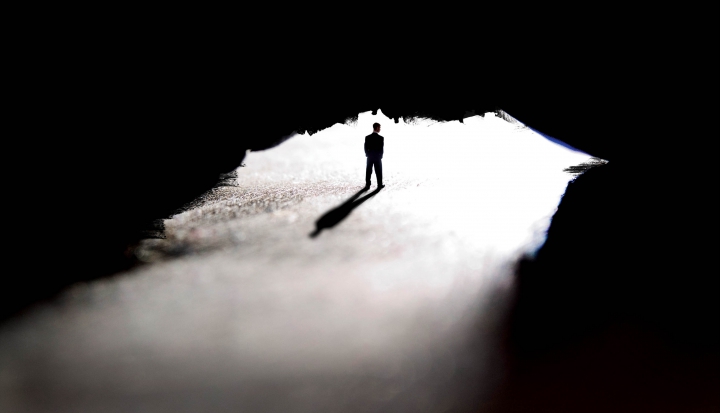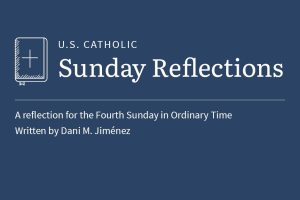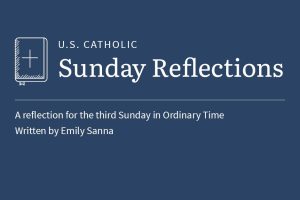Our nation’s political campaign for the presidency has already distinguished itself by its debased level of public discourse. Rather than substantive policy proposals, political candidates offer us poll-tested talking points and crowd-pleasing sound bites. Instead of serious discussion of pressing issues, leading candidates engage in schoolyard taunts and trade adolescent insults. Many commentators are calling our political discourse coarse, vulgar, and rude to a degree unmatched in recent memory.
I believe we can get needed perspective on our national life from Catholic spirituality’s understanding of “dark night” experiences. The dark night, in Carmelite spirituality and the teaching of St. John of the Cross, is a metaphor for a period of profound unraveling, intense disorientation, and deep crisis. When all that we turn to for security, identity, and meaning is severely challenged—if not ripped away—we feel naked, vulnerable, and lost.
Yet John of the Cross insists that such distress is the result of a new experience of God’s presence in our lives. In a paradoxical way, this disturbing turbulence comes from the advent of God, who shatters all of our previous limited images of God and too small conceptions of what God wills. The profound dislocations and crises of the dark night are a summons to surrender views of life and self that have become cramped, stunted, and even destructive. This unraveling is a time of purification. It leads to new life, greater hope, and more authentic love. Baltimore Carmelite Sister Constance FitzGerald describes the dark night experience as “an omen of radical revolution” and a prelude for deep growth.
“The time will come when God’s light will invade our lives and show us everything we have avoided seeing,” FitzGerald writes. “Then will be manifest the confinement of our carefully constructed meanings, the limitations of our life projects, the fragility of the support systems or infrastructures on which we depend . . . [and] the darkness in our own heart. . . . The irony of the situation is that we experience this light as darkness.”
Perhaps our political dark night becomes the mirror that shows us what we have avoided seeing. The vulgarity of our politics challenges us with the toxic results of public discourse that has valued partisan name-calling and punished cooperation for the common good. Perhaps what is being revealed to us are the consequences of years of scapegoating those who look differently, worship differently, or love differently than we do.
This dark night of current politics might be the bright lens that we need to see clearly how some faith leaders have allowed religious discourse to become hijacked to serve the narrow interests of a political party. Perhaps this time of national turmoil, embarrassment, and crisis is the harsh revelation of the folly of an uncritical allegiance to political parties.
God’s love is subversive and destructive; it exposes self-serving political ideologies as shortsighted and corrosive.
And yet FitzGerald and the Carmelite tradition insist that God subverts our plans and projects for the sake of new life. FitzGerald relates how, through unmasking the shallowness of our “achievements,” God leads us to “new minds, as well as new intuitions, new wills, and passionate new desires.”
Perhaps, then, the “grace” of this time is the revelation of how toxic our political environment has truly become, in order to spur us to build a new political culture based not on the exploitation of fear but on solidarity with and for the least among us.
This article appears in the May 2016 issue of U.S. Catholic (Vol. 81, No. 5, page 8).
Image: iStock.com/joshblake













Add comment